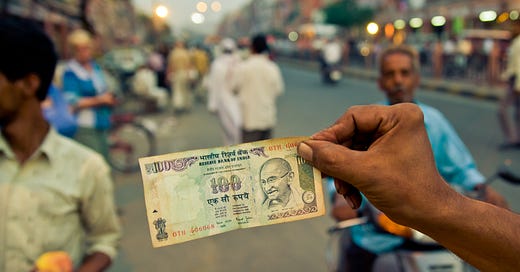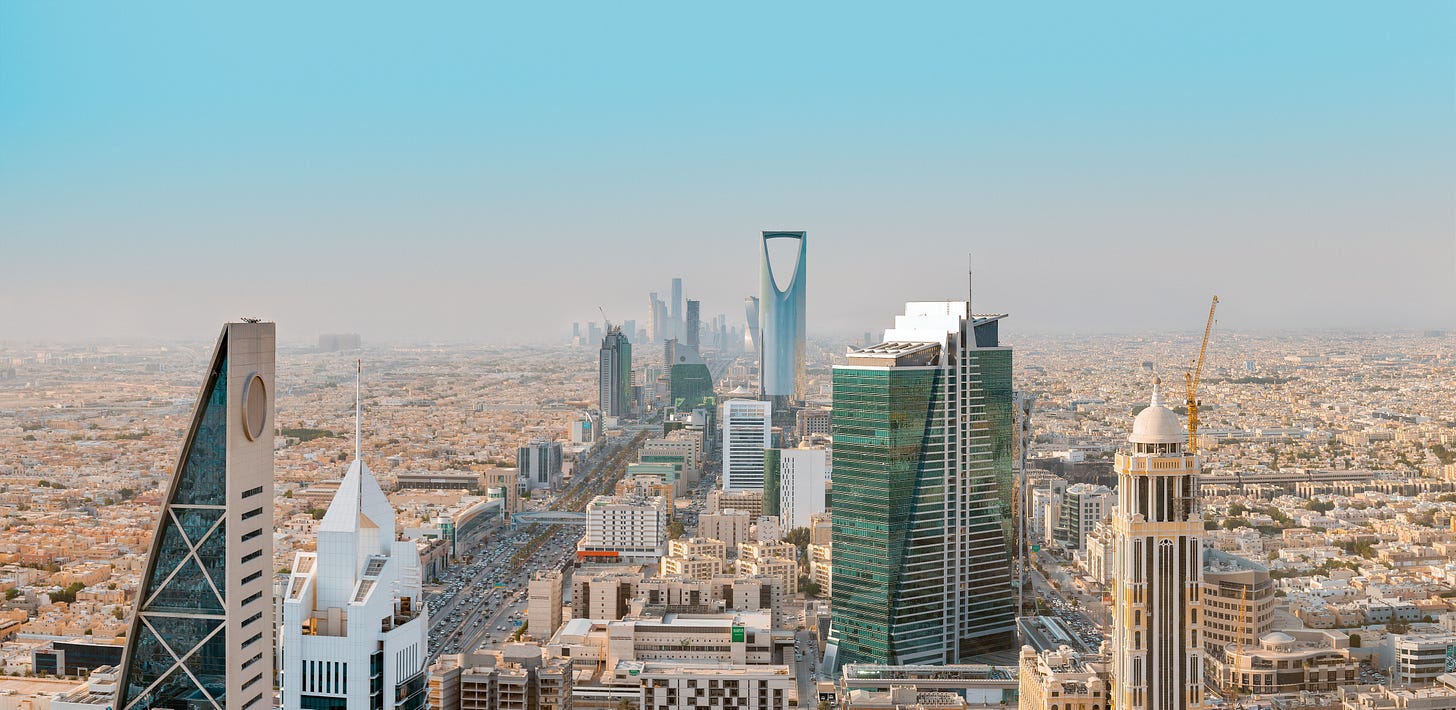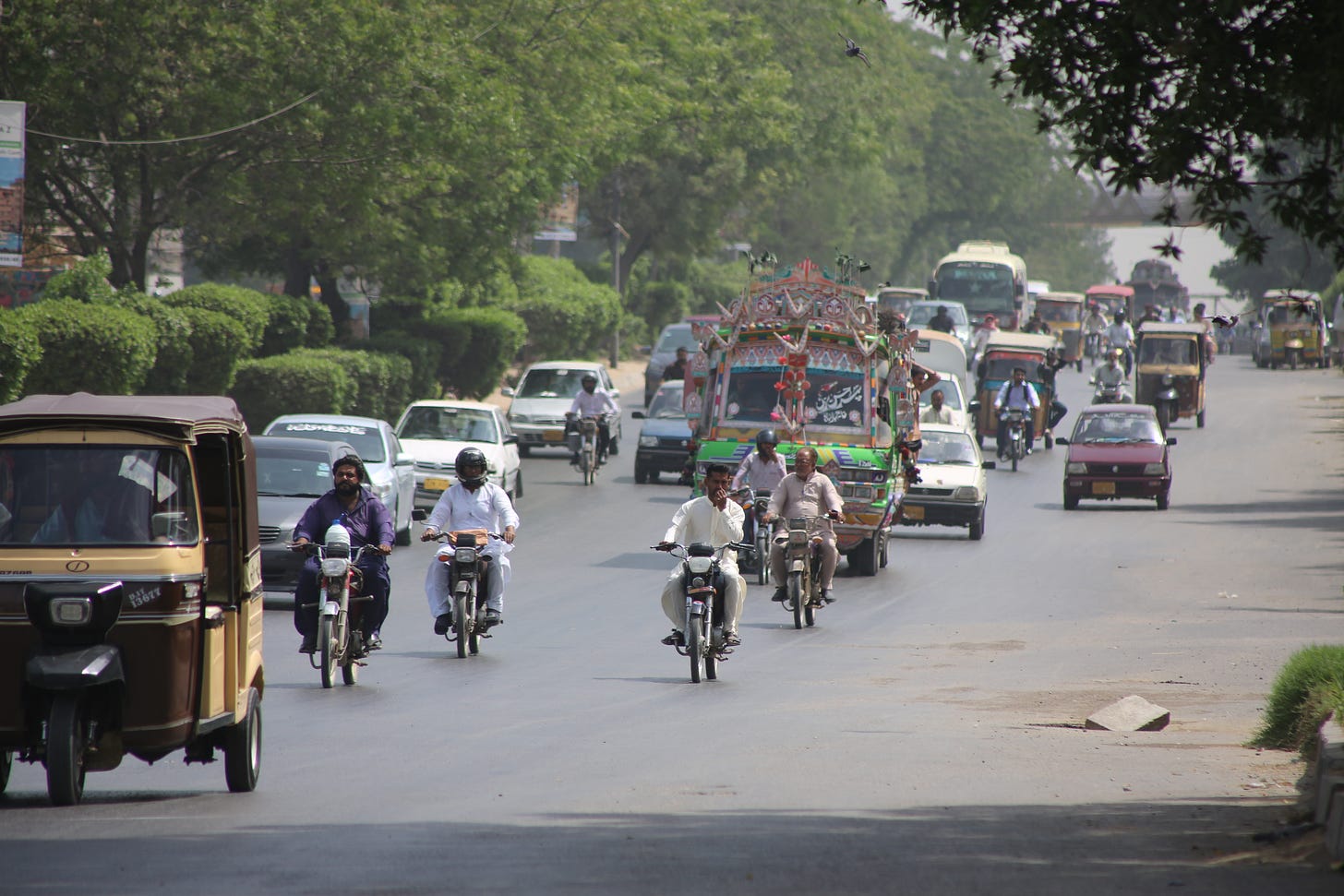Emerging Markets Monitor - August 15
India at 75, Tensions High as Ruto Wins Kenya Election, Saudi Arabia $65B 2Q Oil Windfall, Pakistan CB Gets Saudi Boost, US Laws Stymie China Semiconductors
The Top 5 Stories Shaping Emerging Markets from Global Media - August 15
At 75, India Seeks Way Forward in Big But Job-Scarce Economy
Associated Press
“As India’s economy grew, the hum of factories turned the sleepy, dusty village of Manesar into a booming industrial hub, cranking out everything from cars and sinks to smartphones and tablets. But jobs have run scarce over the years, prompting more and more workers to line up along the road for work, desperate to earn money.”
“…India’s phenomenal transformation from an impoverished nation in 1947 into an emerging global power whose $3 trillion economy is Asia’s third largest has turned it into a major exporter of things like software and vaccines. Millions have escaped poverty into a growing, aspirational middle class as its high-skilled sectors have soared.”
“…This year, the economy is forecast to expand at a 7.4% annual pace, according to the International Monetary Fund, making it one of the world’s fastest growing.”
“But even as India’s economy swells, so has joblessness. The unemployment rate remains at 7% to 8% in recent months. Only 40% of working age Indians are employed, down from 46% five years ago, the Center for Monitoring the Indian Economy (CMIE) says.”
“If you look at a poor person in 1947 and a poor person now, they are far more privileged today. However if you look at it between the haves and the have nots, that chasm has grown,” said Gayathri Vasudevan, chairperson of LabourNet, a social enterprise. Associated Press reports.
Tensions Run High As Ruto Wins Kenya Election
African Business
“Deputy president William Ruto has been named the winner of Kenya’s presidential election despite divisions in the electoral commission over the validity of the result.”
“The former live chicken seller – who has touted himself as a champion of the poor who will empower Kenya’s ‘hustler nation’ – took 50.4% of the vote, and at least 25% in 39 counties, with a total of 7,176,141, said Wafula Chebukati, the chair of the Independent Electoral and Boundaries Commission (IEBC), who is empowered by electoral law to declare the winner.”
“Rival Raila Odinga gained 48.85% of the votes, a total of 6,942, 930, Chebukati said. Over 22m of registered voters cast their votes, around 56.17% of Kenya’s 54 million population.”
“However, moments before the results went live, four of the seven members of the IEBC disowned the results. The split nature of the IEBC decision makes a court challenge by Odinga likely, but a legal challenge must take place in the next seven days.”
“…The results of the last presidential election in 2017 were annulled after the Supreme Court ruled that the electoral commission had not followed protocol on vote tallies. A similar legal challenge could spark tensions in areas heavily contested by the candidates, says Ben Hunter, Africa analyst at Verisk Maplecroft.”
“…The national election headquarters beefed up riot police on Monday after skirmishes broke out between police, election officials and party agents over allegations of vote rigging.”
“…Born in the Rift Valley, 55 year-old Ruto owns vast parcels of land and a chicken farm in his home village of Sugoi. Ruto descends from the third biggest ethnic group, the Kalenjin, which has produced just one other president Daniel Moi, who served for 24 years. The sharp-suited deputy president pledges to launch an annual $420m ‘hustler fund’ which aims to provide credits at an affordable rate to 10m small and medium enterprises (SMEs).”
“Ruto claims to have worn his first pair of shoes at 15 years-old, having spent his early years barefoot. Like many leading Kenyan politicians he has seamlessly shifted party alliances over the course of his political career.”
“…The new president faces an economy with rising debt challenges, job losses from the pandemic, and rising fuel and food prices….Kenya’s debt rose to $68.8bn in 2021, from just $37.7bn, or 34% of GDP, when current president Uhuru Kenyatta was re-elected in 2017. Of that 63% of bilateral debt is owed to China – approximately $7bn – mainly for large-scale infrastructure projects such as the Nairobi Expressway, which cost $668m, according to the World Bank.” Shoshana Kedem reports.
Saudi Arabia 2Q Oil Windfall Tops $65 Billion. Aramco Dividends Unchanged.
Bloomberg
“The Saudi government’s oil income almost doubled in the second quarter even as state-controlled producer Aramco held dividends unchanged.”
“…Aramco has stuck to annual dividend payments of $75 billion a year through oil’s crash in 2020 and subsequent recovery, in contrast to some of the other biggest oil companies which slashed payouts as prices crashed during the pandemic. Some analysts are preparing for a boost later this year.”
“‘They probably will up the dividends in the second half,’ Aarthi Chandrasekaran, director of investments at Shuaa Asset Management, said in a Bloomberg Television interview. With Aramco likely to reduce gearing -- a measure of debt to equity -- to its 5% target by the fourth quarter, ‘they might open up the taps for the dividend.’”
“…Aramco is also using record profits to finance what it calls the ‘largest capital program in our history.’ The company is working to expand output capacity to 13 million barrels of crude a day by 2027, from 12 million now, as it sees oil demand continuing to grow for the rest of the decade.”
“Capital expenditure this year will be at the low end of the $40 billion to $50 billion range it announced in March, up from about $32 billion last year.”
Saudi Arabia Renews $3B Deposit for Pakistan Central Bank
Financial Times
“Saudi Arabia has agreed to renew a $3bn deposit at Pakistan’s central bank to bolster the south Asian state’s depleted foreign reserves as Islamabad negotiates an aid package with the IMF, according to people familiar with the deal.”
“The world’s top oil exporter, which has traditionally provided financial aid to Islamabad, has also agreed to support Pakistan with $1bn in petroleum products over 10 months.”
“The assistance could help Pakistan secure a $1.2bn payment from the IMF, whose board is set to meet this month to approve the disbursement. The IMF agreed last month to increase its loan package by $1bn to $7bn, but has conditioned the disbursement on assurances that Pakistan receives additional financial support from elsewhere.”
“‘Saudi Arabia has agreed to roll over its $3bn deposits in Pakistan’s state bank [central bank] reserves, which will help to revive the IMF loan,’ said a senior Pakistani official. The official said Pakistan, the IMF and Saudi Arabia had also discussed the possibility of Islamabad being able to borrow up to $2.8bn against Riyadh’s quota of Special Drawing Rights (SDRs) at the fund.”
“….The country’s foreign exchange reserves have fallen to about $9bn after Russia’s invasion of Ukraine in February caused a surge in global energy and food prices. Fitch Ratings revised its outlook for the country to negative from stable last month because of what it called a ‘significant deterioration in Pakistan’s external liquidity position and financing conditions since early 2022’.” The FT reports.
New US Export Controls Stymie China Semiconductor Ambitions
South China Morning Post
“New US export controls on technologies for the production of advanced chips and gas turbine engines, which took effect on Monday, have set up an imposing roadblock that prevents China from achieving its semiconductor ambitions, according to analysts.”
“The Bureau of Industry and Security (BIS), an agency under the US Department of Commerce, last Friday announced the export controls on grounds of national security. The four restricted technologies are among the items covered by the multilateral 1996 Wassenaar Arrangement on Export Controls for Conventional Arms and Dual-Use Goods and Technologies, in which China is not a member.”
“Three of the four restricted technologies include electronic computer-aided design software, which is used for developing next-generation chips with gate-all-around (GAA) field-effect transistor structure, and two substrates of so-called ultra-wide bandgap semiconductors – gallium oxide and diamond – that operate at much higher voltages, frequencies and temperatures than conventional chip materials like silicon.”
“While China is not singled out in the latest US export controls, analysts said the restrictions clearly target the world’s second-largest economy.” South China Morning Post reports.
“When obstacles arise, you change your direction to reach your goal; you do not change your decision to get there.”
― Zig Ziglar






